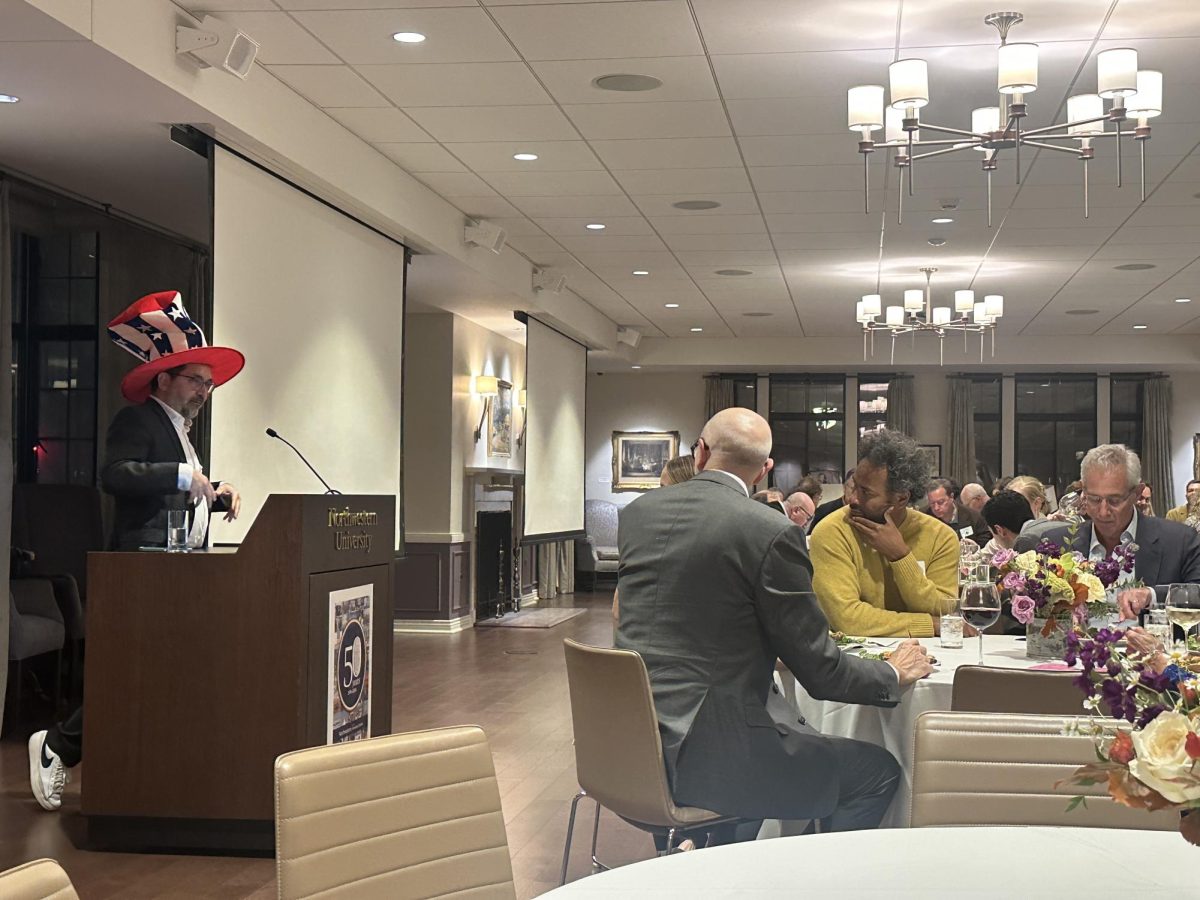When English Professor Emeritus Carl Smith founded the American Studies program in 1974, he envisioned an interdisciplinary honors program hinged on field-based learning and a senior thesis.
The application-only program has since become a part of Northwestern’s living history.
“We used to do history, and now we seem to have become it,” Smith said.
The American Studies program celebrated its 50th anniversary Friday night in Scott Hall, drawing over 100 students, alumni and faculty. The event featured a dinner; speeches from Smith, current director Geraldo Cadava and the Weinberg Dean Adrian Randolph; as well as a keynote address from history Prof. Kathleen Belew.
The program’s celebrations also included alumni panels during the first weeks of school and an NU football tailgate.
Alumni from the class of 1978 — the first American Studies class — through the class of 2024 attended Friday’s event.
Wearing an Uncle Sam hat at the podium, Cadava said the program’s strong community made the celebration, which he called the “Eras Tour” of events, special.
“That’s a real testament to the fact that we have been able to build and maintain this kind of close-knit intellectual community,” Cadava said.
Belew said her address was inspired by her then 9-year-old son’s fascination with the conspiracy theory that the megalodon still exists.
In her keynote, she analyzed the differences between disinformation and conspiracies while exploring the reasons people engage with conspiracies in the first place.
“These are not about, ‘Can you show me scientific evidence of a megalodon tooth that dates from less than 300 years ago?’” Belew said. “This is about deep-seated emotional truths and about fear.”
Weinberg senior Lili Jurado, an American Studies and Religious Studies major, said the interdisciplinary nature of the American Studies program has expanded her perspective.
“It teaches us different ways to think about the same problems, and it also shows us that we have a lot more in common across disciplines than we would expect,” Jurado said. “I feel like I’m learning a lot of new perspectives and learning more about the world and how to be a good citizen.”
J. Carl Ganter (Weinberg ’87) said the program helped him find his professional niche.
Ganter said his senior thesis, which involved living with families affected by the steel industry layoffs in East Chicago and Gary, Indiana, gave him the tools to look at challenges in history from a “systems perspective.” Ganter is the founder and director of Circle of Blue, an organization that focuses on using data journalism to report on water security issues.
“It helped me assert my license to be curious, to kind of explore,” Ganter said. “The American Studies program was a real definer for where I ended up, and that was tying all sorts of different tools together for a national and international focus.”
Smith closed out the night by talking about the evolution of the program, from its time in the basement of University Hall to its lounge on the fifth floor of Kresge Hall. But he said the core values and experience of the program have remained largely the same throughout 50 years.
“Wherever that room has been, it’s been a very special place where faculty and majors just sit and talk, taking ideas and each other very seriously,” Smith said. “That’s the highest compliment that you can give.”
Email: [email protected]
Related Stories:
— NU Declassified: American Studies — small cohorts, big opportunities
— AASP students present projects for senior symposium
— African American Studies Department to be renamed Black Studies






